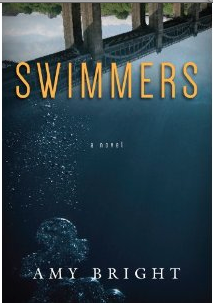I picked up Wonder by
R.J. Palacio for the cover and synopsis a few days ago, and read it in one
sitting. It is a fast, affecting, and thoughtful read, and follows August
Pullman through his first year of middle school at Beecher Prep.
August hasn’t attended school before. He knows about school – his older sister
Via is starting high school at the same time August starts middle school – but
he has been homeschooled by his mom for his entire life. Homeschooling is, in
part, a protective impulse. August was born with a facial deformity that
prevents him from living a completely “normal” life; the moments in which the
ten-year-old registers the look of terror, revulsion, and horror on the faces
of the people who spot him are heart breaking. He has gone through more
surgeries than Palacio relates, but now he is facing a stretch of a few years
when no new surgeries are necessary, and he can start adjusting to some sense
of routine.
Palacio’s ability to write from August’s perspective is one
of the most important aspects of this book. She never clearly describes the
full extent of August’s facial deformity; instead, she relates it piece by
piece, setting up a jigsaw puzzle that doesn’t have a corresponding picture
that notifies the reader what the final image should look like. From the dust
jacket description, I thought that Wonder
was going to be entirely August’s story, but after a few dozen pages the
point of view switches suddenly to August’s sister Via, who is going through
her own transition from middle school to high school. Even she does not shed
light on the exactness of August’s facial deformity. Instead, she describes the
surgeries, the people who are afraid of her brother, and her own experience
living with August. Rather than jumping back to August’s perspective, Palacio
moves to new characters for almost the entirety of the book. These are August’s
and Via’s friends, although August tells the majority of the story.
Jack Will, a boy that August meets at school, even notes
that he knew who August was even before he started school at Beecher Prep:
“It’s not just that he’s the new
kid, Mom,” I answered. “He’s
deformed.”
deformed.”
“That’s a terrible thing to say,
Jack.”
“He is, Mom.”
“You don’t even know who it is!”
“Yeah, I do,” I said, because I
knew the second she started talking about him that it was that kid named
August.
While August’s life has not been easy (and his narration
makes this clear), the characters that surround him have had to deal with
difficulties that may not be as bad as what August is dealing with, but they
have still affected who they are and what they are capable of. Via is the most
striking example of this. Her love for and care of her brother is detailed by
August in the first few pages of the book, however, Via supplements this by
telling the reader how difficult it has been to grow up in a house with August.
She says, “August is the Sun. Me and Mom and Dad are planets orbiting the Sun.
The rest of our family and friends are asteroids and comets floating around the
planets orbiting the Sun…But this year there seems to be a shift in the cosmos.
The galaxy is changing. Planets are falling out of alignment.” Her own
relationship with her grandmother is central to Via’s story, a relationship not
as available to August because his grandmother passed away while he was still
young. Via, however, spent a lot of time with her.
Palacio also references so many books, movies, and songs
from popular culture that are relevant to younger middle school readers. Diary of a Wimpy Kid and the “Cheese
Touch,” the Magnetic Fields, Star Wars,
classical and contemporary literature, and others are consistently at play in Wonder. Palacio’s combination of
numerous perspectives and forms (one section is told through Facebook, email,
and texts) attempts to create a whole picture of August and his experience. There
is even a section narrated by a character named Justin is completely undercase
(although there does not seem to be a reason for this change in style).
Wonder is at one
affecting and understated, with a vast array of characters that each have
something important, yet quiet, to leave with readers.





No comments:
Post a Comment